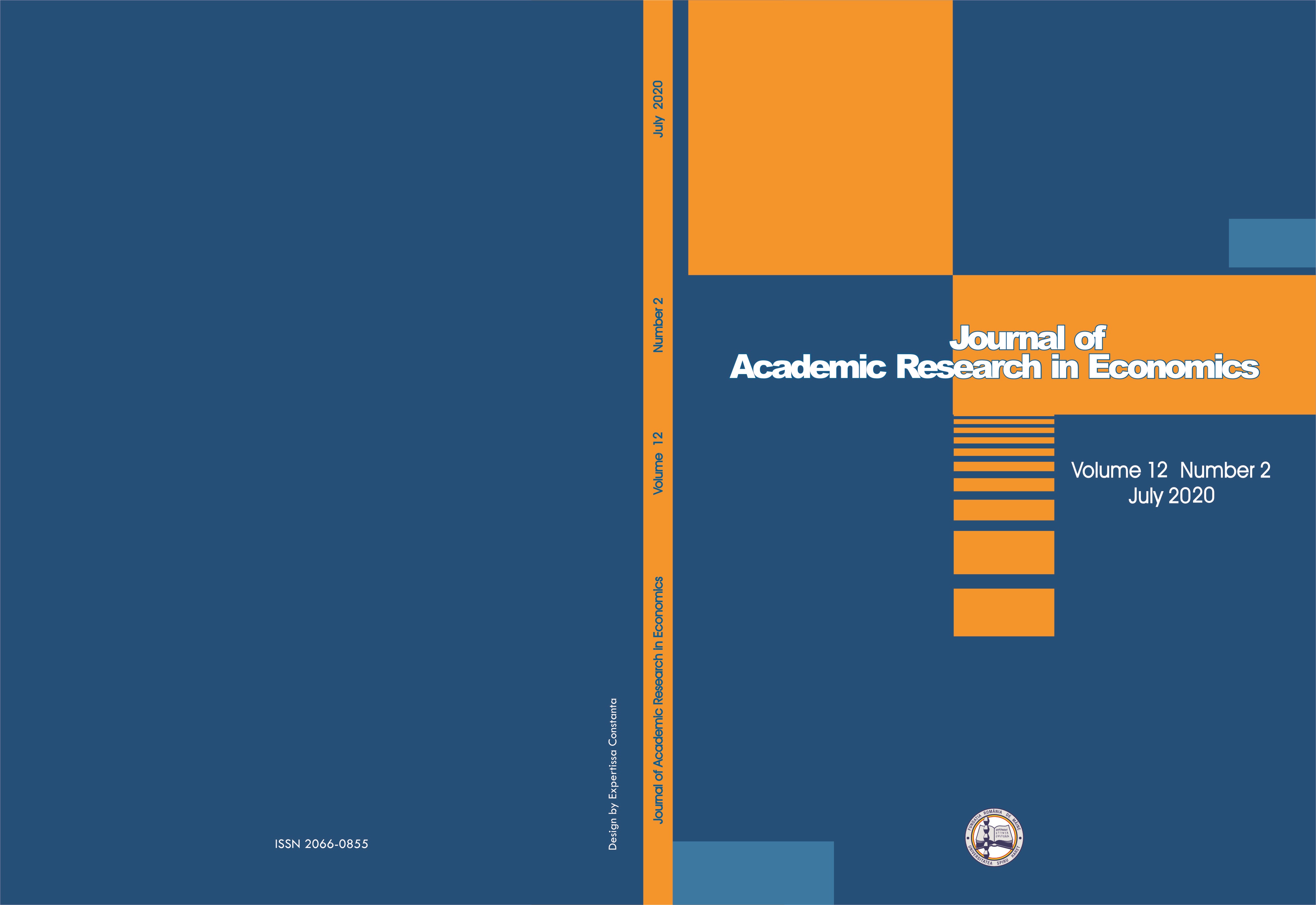DOES ENTREPRENEURSHIP FINANCING CONTRIBUTE TO POVERTY ERADICATION IN NIGERIA? EVIDENCE FROM SMALL AND MEDIUM SCALE ENTERPRISES
DOES ENTREPRENEURSHIP FINANCING CONTRIBUTE TO POVERTY ERADICATION IN NIGERIA? EVIDENCE FROM SMALL AND MEDIUM SCALE ENTERPRISES
Author(s): Timothy Ayomitunde Aderemi, Efunbajo Samuel Adekunle, Amusa Bolanle Olabunmi, Rasheed Olusola IyabodeSubject(s): National Economy
Published by: Universitatea SPIRU HARET - Faculty of Accounting and Financial Management
Keywords: Entrepreneurship; Poverty Eradication; SMEs Financing; ARDL and ECM
Summary/Abstract: The aim of this paper is to provide an answer to the question whether entrepreneurship financing regarding Small and Medium Scale Enterprises (SMEs) eradicate poverty in Nigeria between 2000 and 2018. The study utilized data from the Central Bank of Nigeria Statistical Bulletin and World Development Indicators. Consequently, Autoregressive Distributed Lagged, Bounds test and Error Correction Model techniques were utilized to address the objective of the study. The important findings that emerged in this work could be summarized as follows; agriculture and forestry financing does not contribute to poverty eradication in both the short run and the long run. However, mining and quarrying business financing eradicate poverty in the short run. In the same vein, financing of manufacturing and food processing businesses contributes to the eradication of poverty in the long run. Aggregate lending of the commercial bank causes eradication of poverty in both in the short run and the long run respectively. The speed of adjustment in which it took the model to correct disequilibrium due shock from the previous year to equilibrium in current year is 27%. Moreover, due to the important findings that emerged in this work, the following recommendations are made for the policy makers in Nigeria in specific and Africa in general to explore. Financing of mining and quarrying businesses, manufacturing and food processing should be the priority of the Nigerian government since poverty eradication could be achieved through this in the both short run and the long run in the country. Also, the commercial banks should increase the percentage of their lending to SMEs in order to encourage the expansion of SMEs entrepreneurship which its multiplier effects reduce poverty in the nearest future. Finally, commercial banks’ lending towards agricultural sub sector should be increased. Therefore, the Central Bank of Nigeria should implement appropriate policies that will redirect the commercial banks’ lending to agricultural sub sector in Nigeria.
Journal: Journal of Academic Research in Economics (JARE)
- Issue Year: 12/2020
- Issue No: 2
- Page Range: 312-322
- Page Count: 11
- Language: English
- Content File-PDF

